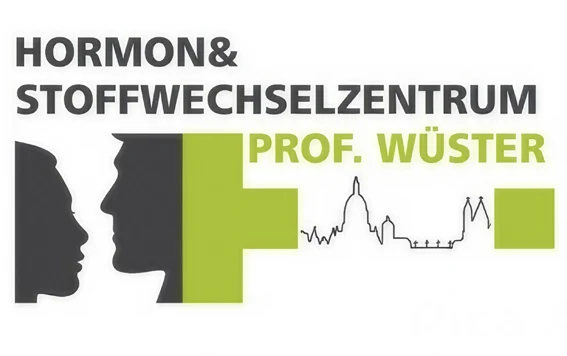Facts about the thyroid: Endocrinologist Mainz/Wiesbaden
Prof. Dr. Christian Wüster answers the most important questions about the thyroid
The thyroid gland, an organ in the front of the neck with the shape of a butterfly, is a real all-rounder. The ‘performance spectrum’ of the thyroid gland is vast. The work of the thyroid gland as a ‘hormone producer’ has an impact on our entire organism – metabolism, circulation, growth, psyche. Prof Dr Christian Wüster, a practising endocrinologist in Mainz, wants to shed light on this important organ. Millions of people in Germany suffer from a malfunction of the thyroid gland.
Millions of people in Germany suffer from thyroid dysfunction
The effects that a thyroid disorder can have on our organism are manifold. Goitre is perhaps the best-known thyroid disorder. The exact position of the thyroid gland – in the neck, in front of and to the side of the windpipe. If it becomes enlarged, it can cause considerable problems. In common parlance, the enlarged thyroid gland is called a ‘goitre’, the medical term is (Latin) ‘goitre’. Statisticians estimate that 20 million people in Germany suffer from goitre. The older a person is, the more likely they are to be affected. The function of the thyroid gland is not usually impaired.
Goitre, especially in older people
Thyroid disease can be prevented if it is recognised in good time. The most important questions and answers from Prof Dr Christian Wüster about the thyroid gland:
Question: How likely is it that I will be diagnosed with a thyroid disorder and how can I recognise it?
Answer from Prof Dr Christian Wüster: Thyroid disorders are very common. More often in older people than in young people. Treatment is often not necessary. If a goitre forms, this is a clear indication of a thyroid disorder that should not be taken lightly. Due to its location, the goitre can lead to swallowing difficulties. Indications of thyroid dysfunction include weight gain, nervousness, depression or sleep disorders. Lack of motivation or constant tiredness can also be signs of thyroid disease. A precise diagnosis is made by an endocrinologist. You should see an endocrinologist if there are signs that indicate thyroid dysfunction.
Question: And how does the endocrinologist recognise whether my thyroid values are within the normal range?
Answer from Prof Dr Christian Wüster: The indicator is the so-called TSH value. The hormone TSH is produced in the pituitary gland. Its task is to control the hormone production of the thyroid gland.
Here you can see how the hormones in our body work – everything is connected to everything else. The TSH value may be within a certain tolerance. The value also depends on the person’s age or life situation. A person’s hormone levels fall as they get older.
Question: We often hear about hyperthyroidism and hypothyroidism. What does that mean for me?
Answer from Prof. Dr. Christian Wüster: The thyroid produces the hormones triiodothyronine (T3) and thyroxine (T4). In order to be able to produce these hormones, the thyroid needs iodine and protein. Our bodies cannot produce iodine themselves. This means that we have to consume iodine through our food. If this does not happen in sufficient quantities, the thyroid enlarges. A goiter develops.
An overactive thyroid (hyperthyroidism) is when the thyroid gland produces too many hormones and releases them into the bloodstream. In the case of an underactive thyroid (hypothyroidism), the gland produces too few hormones. The most common cause is Hashimoto’s disease. Both malfunctions have an effect on the entire organism.
Question: What diseases are there, for example? Hashimoto’s and Graves’ disease are on everyone’s lips.
Answer from Prof Dr Christian Wüster: In rare cases, hypothyroidism is congenital. However, inflammation of the thyroid gland is often the cause of the disease. This is the case with Hashimoto’s, for example. Hashimoto’s thyroiditis is a chronic inflammation of the thyroid gland, a so-called autoimmune disease in which the body’s own immune system attacks the thyroid tissue. You have also already mentioned the well-known hyperthyroidism. In over 90 per cent of cases, hyperthyroidism is caused by Basedow’s disease, also known as Graves’ disease, which is also an autoimmune disease. Thyroid cancer is one of the rarer types of cancer. In Germany, over 5,000 people are diagnosed with thyroid cancer every year. Mostly women are affected. The probability of dying from thyroid cancer is less than 0.1 %.
Question: How is hyperthyroidism or hypothyroidism treated?
Answer from Prof Dr Christian Wüster:
These thyroid disorders can be treated very successfully today. If an underactive thyroid is diagnosed, for example, it can be successfully treated with synthetic thyroxine, which is taken in tablet form. Similarly, hyperthyroidism is usually treated with thyreostatics. Thyreostatics prevent the overproduction of thyroid hormones. However, other forms of therapy can also be used, such as radioiodine therapy.
Question: Can I protect myself? Do preventive examinations make sense?
Answer from Prof Dr Christian Wüster: If there are indications of thyroid disease, it is best to consult an endocrinologist in good time. Persistent insomnia, tiredness, listlessness but also nervousness or depression can be such signs. From the age of 40, you should also have your hormone balance checked regularly every one to two years anyway. If there is a family history of thyroid disorders, this alone should be reason enough to consult a doctor. There are indications that thyroid disorders can be hereditary. An important preventive measure is a good supply of iodine. Iodised salt, bread, dairy products, seafood – these foods contain a lot of iodine. Smokers should be aware that the cyanide contained in tobacco smoke blocks the absorption of iodine.
Picture: © goa novi/Fotolia

